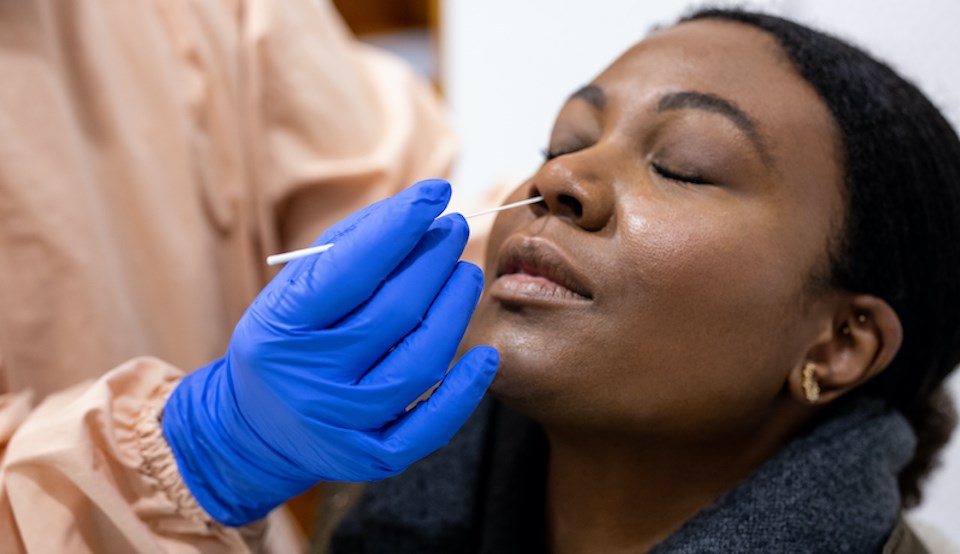As coronavirus hospitalizations continue to rise in B.C., experts warn the third wave of Omicron infections could peak by August.
COVID-19 hospitalizations across the province jumped 35 per cent to 369 Thursday (July 7), up from 273 last week. This is the highest count since June 2, when there were 421 such patients in B.C. hospitals.
This is the first uptick in the number of COVID-19 hospitalizations in the province since May 12.
The works on rapid response modelling of the pandemic, with a special focus on British Columbia and Canada.
In a June 29 , the group says new genomic data shared by the public database GISAID provides a better understanding of where B.C. and Canada are now in the latest Omicron wave.
In a subtweet, the group remarked that it is clear the "third Omicron wave is here and risk levels should rise again over the next month."
Additionally, genetic changes in the BA.4 and BA.5 variants make them "harder for our immune systems to recognize."
COVID-19 update: Third wave of Omicron infections in B.C.
Dr. Sarah Otto, a professor of zoology at the University of British Columbia (UBC) and a member of the modelling group, told Â鶹´«Ã½Ó³» that the BA.5 and BA.4 lineages are now "clearly" the most common ones in B.C.
As of Friday, July 8, the professor expects BA.5 will account for 70.3 per cent of Omicron infections in the province, with those numbers rising. While she forecasts BA.4 will comprise 20.5 per cent of them, this frequency is expected to wane.
"The rest are almost all BA.2 and dropping even faster," she noted.
But it is challenging to predict how high the third Omicron wave, driven by BA. 5, will rise, Otto said.
"Given its rapid rise, I expect the BA.5 wave to rise rapidly in July, peaking sometime in August, but we don’t yet have good projections beyond the next couple of weeks."
The British Columbia Centre for Disease Control detected 765 new COVID-19 infections in the week that ended July 2. That is up by 145 from one week earlier, and it raises the number of known COVID-19 infections in B.C. to 375,357 since the first case was detected in late January 2020.
V.I.A. has reached out to the B.C. Ministry of Health for further comment.
With files from Glen Korstrom.



